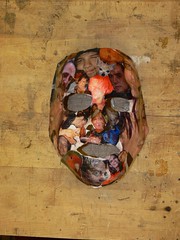On David Ball’s Backwards and Forwards
Of course this ties ever so neatly into Aristotle’s observations about causality. I think one element that Ball uncovers is how causality can be directly tied to suspense — building the audience’s expectations in such a way that they can’t help but watch. He mentions directors cutting out huge scenes from Hamlet, without realizing the significance to the story; I am reminded of watching The Exorcist once, late at night, and I would doze off in the ‘boring’ parts of the film, and wake up just in time for the scary ones. But they weren’t scary at all. The pacing of the film, and the events that set up the most disturbing moments are only scary because of the lulls before, either because some bit of information had been laid out, or often, because the audience has been misdirected so as not to suspect the inevitable fright that is about to occur.
Continue reading



